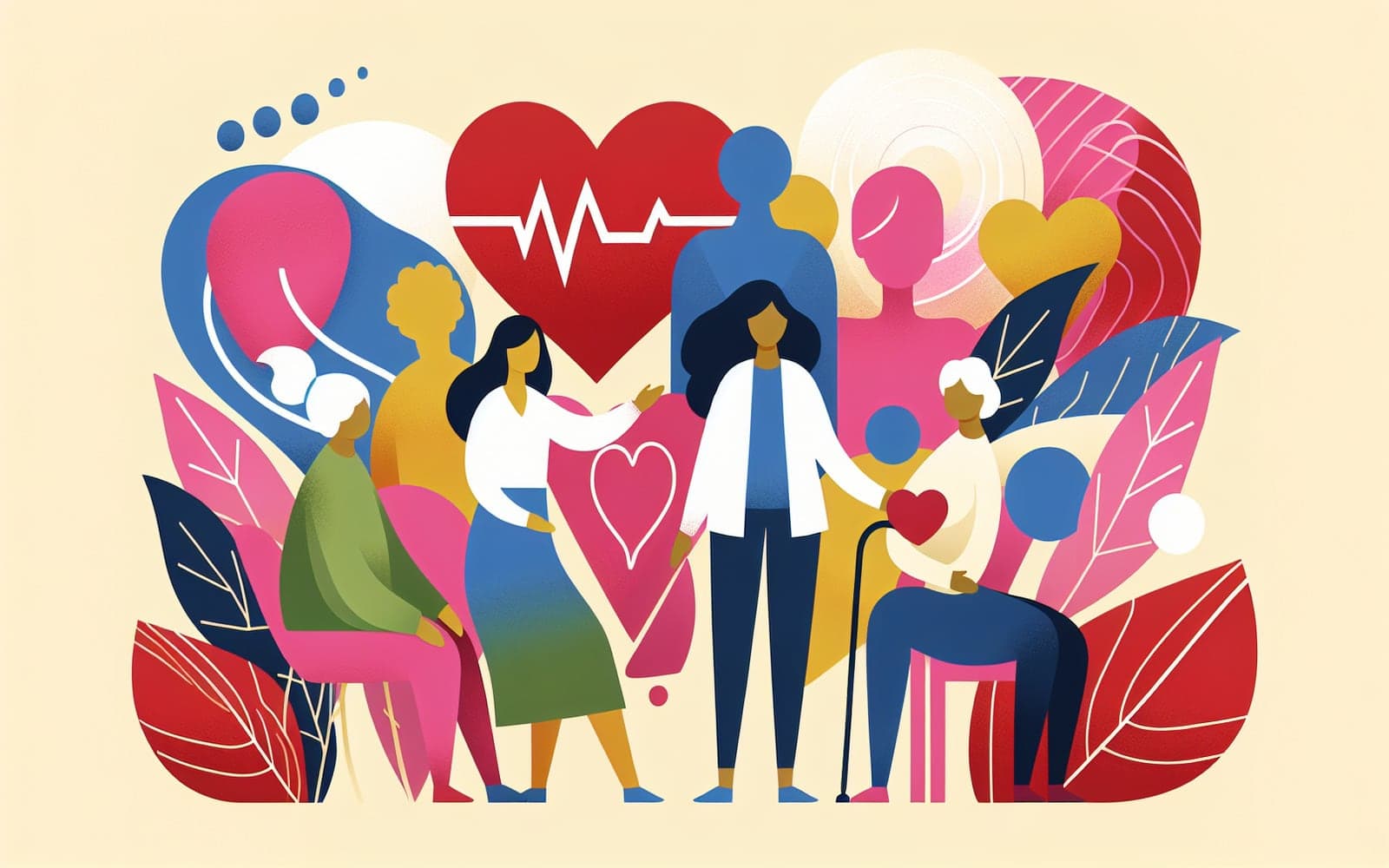Contents
-
How Menopause Impacts Heart Health
-
Key Risk Factors to Watch
-
Protective Strategies
-
Hormone Therapy and Heart Health
Menopause and Heart Health: What Women Need to Know
Menopause and Heart Health: What Women Need to Know
A Critical Connection
Menopause marks more than the end of menstrual cycles - it also brings changes that can affect heart health. Understanding these risks can help women take proactive steps to protect their cardiovascular well-being.
Contents
-
How Menopause Impacts Heart Health
-
Key Risk Factors to Watch
-
Protective Strategies
-
Hormone Therapy and Heart Health
How Menopause Impacts Heart Health
Estrogen has protective effects on the cardiovascular system. As estrogen levels decline after menopause, women's risk of heart disease increases. Changes in blood pressure, cholesterol levels, and body fat distribution can all contribute to higher cardiovascular risk.
Key Risk Factors to Watch
Post-menopausal women should pay attention to blood pressure, cholesterol levels, weight, and blood sugar. Family history and lifestyle factors like smoking or lack of exercise also play important roles. Regular check-ups can help monitor these risk factors.
Protective Strategies
A heart-healthy lifestyle is crucial. This includes regular exercise, a balanced diet rich in fruits and vegetables, maintaining a healthy weight, and not smoking. Managing stress through techniques like meditation can also be beneficial. Some women may benefit from medications to control blood pressure or cholesterol.
Hormone Therapy and Heart Health
The role of hormone therapy in heart health is complex. For some women, starting hormone therapy within 10 years of menopause may have cardiovascular benefits. However, starting later or using long-term may increase risks. Discuss the pros and cons with your doctor based on your individual health profile.
FAQs
Does menopause cause heart disease?
It increases risk, but doesn't directly cause it.
At what age does heart disease risk increase?
Risk begins to rise about 10 years after menopause starts.
Can exercise reduce heart disease risk?
Yes, regular physical activity is highly protective.
Is hormone therapy recommended for heart health?
It's not used solely for this purpose, but may have benefits for some women.
Are heart attack symptoms different in women?
They can be; women may experience more subtle or atypical symptoms.
Empowered Prevention
While menopause brings changes, women can take charge of their heart health through awareness and proactive steps.
Additional References
-
El Khoudary SR, et al. Menopause Transition and Cardiovascular Disease Risk: Implications for Timing of Early Prevention: A Scientific Statement From the American Heart Association. Circulation 2020; 142:e506-e532.
-
Manson JE, et al. Menopausal hormone therapy and long-term all-cause and cause-specific mortality: the Women's Health Initiative randomized trials. JAMA 2017; 318:927-938.
-
Mosca L, et al. Effectiveness-based guidelines for the prevention of cardiovascular disease in women--2011 update: a guideline from the American Heart Association. Circulation 2011; 123:1243-1262.
This article has been reviewed for accuracy by one of the licensed medical doctors working for Doctronic.












